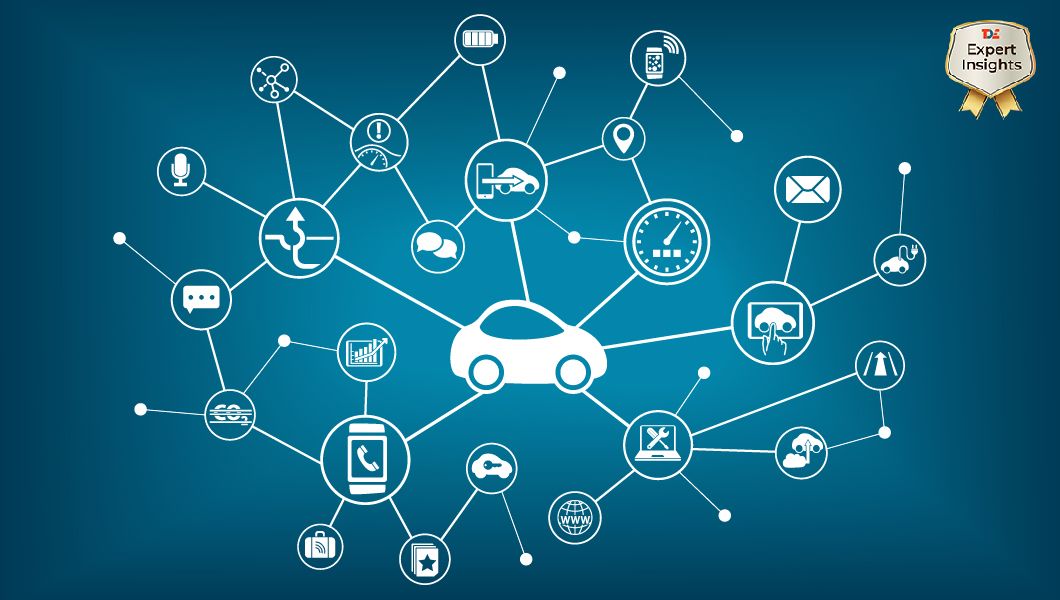Smart Contracts: The Business Process Enablers for Blockchain
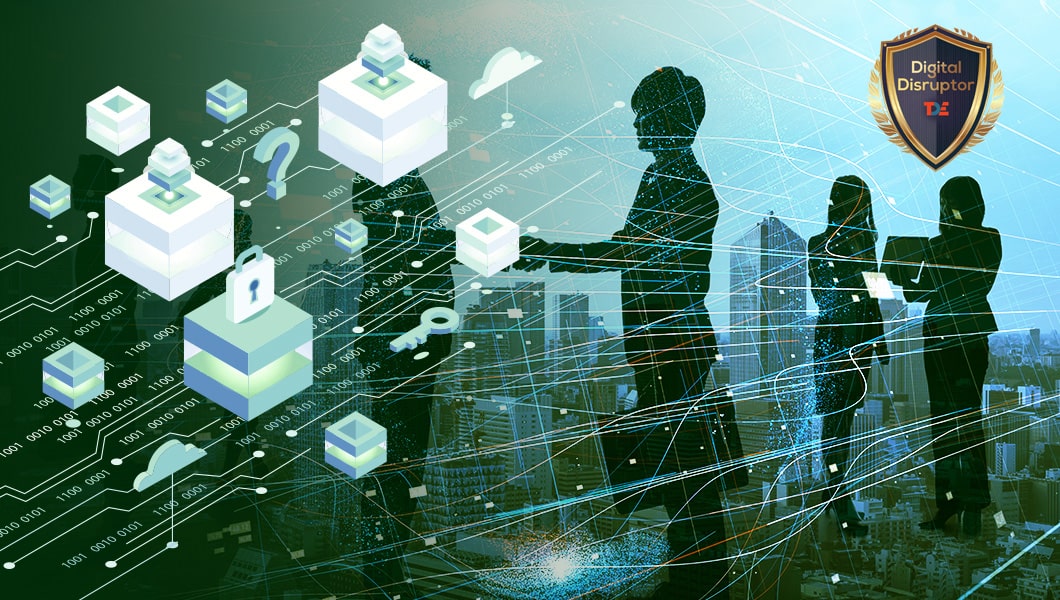
This article is the first in a series of articles exploring ‘Smart Contracts’ and how enterprises can benefit from their use. Here, Antonio delves into the basics of smart contracts for the enterprise and the types of smart contracts based on applications. Founder and CEO of Italian start-up Digital Business Innovation srl, Antonio is regarded as one of the top DX influencers on artificial intelligence, cyber security, digital transformation, the Internet of Things, and blockchain. He is an advisor and enterprise and public sector consultant and mentor to numerous startups
With so much being spoken and written about blockchain, the technology seems to be in danger of being misinterpreted by the general audience. For them, it’s no more a technology, but a one-man-band that can do anything – enable bitcoin, secure data, make a coffee and more!
Demystifying the common hype around blockchain, we can simply affirm that it is “just a database”, a secure, decentralized and transparent container of data that introduces a smart concept – link each data with the previous data using cryptography. So, each transaction is linked to the previous transaction via the hash algorithms that reduce the amount of data contained in the transaction to a single and fixed length string. This string is then added to the next transaction and recalculated creating the ‘chain’.
But here, we’re not exploring how blockchain works, rather we’ll delve into how it can be adopted in the enterprise business model to harness the many benefits that this interesting technology has to offer.
Since an enterprise is a complex set-up, it involves processes to connect people and their use of information for various day-to-day purposes. A process is a formal procedure used to fulfill a specific action or transaction. Sometimes the processes may only need coordination with people within the organization, and at other times these processes may require collaborating and partnering with other organizations for various business goals.
This “Business Process”, as is commonly termed in an organizational atmosphere, could be an order, an invoice or a payment – all transactions that involve people and data. And, blockchain can help organizations to secure all these transactions.
But, can transactions be secured using a database? No they can’t!
There needs to be a layer of “logic”, more precisely business logic to merge this data with the actions that people can take using it. And, Smart Contracts is this layer of business logic, which enables blockchain to support a business process fulfillment.
Smart contracts explained
Simply put, Smart Contracts manage transactions in a pre-programmed, automated way.
The common logic used to complete a transaction is either ‘If-this-then-that’ or ‘after-this-then-that’. Hence, it’s a logic orchestration between subjects (or things) involved in the transaction.
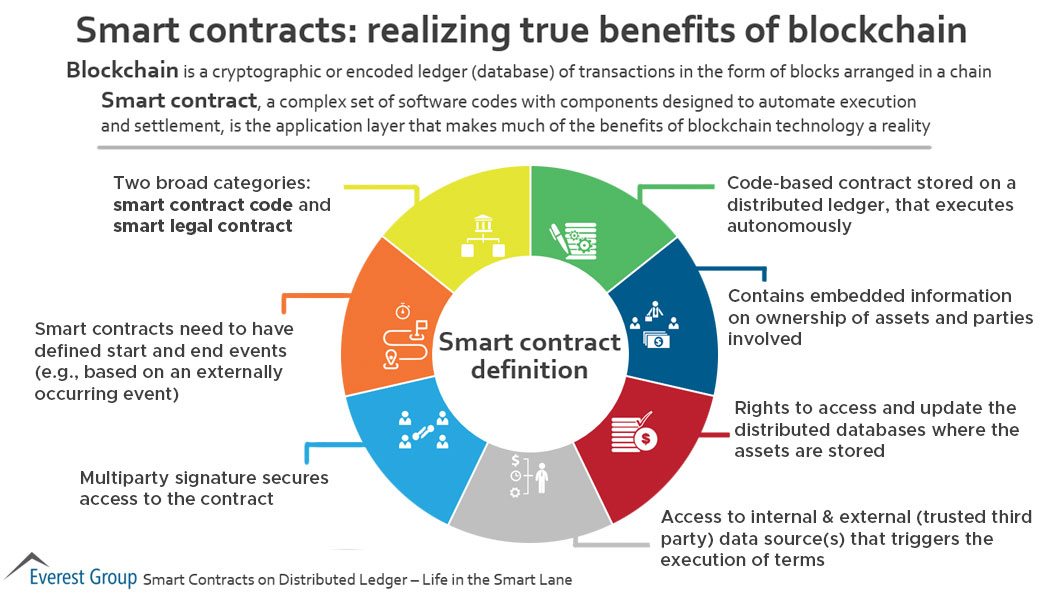
You can define the terms, the events and the signature needed to fulfill the process. If the product is not a tangible one, you can choose Digital Rights Management (DRM) to manage access or control the rights on the digital assets in the smart contract.
Smart Contracts are executed in an automated way and don’t need human intervention or paper trails. They are decentralized and at the same time secured.
They can be divided into two broad categories: Smart Legal Contracts and Code-Based.
The Code-Based Smart Contracts, which are based on applications, can be further divided into three subtypes – DAO (Decentralized Autonomous Organizations), DApps (Distributed Applications) and IoT-combined contracts.
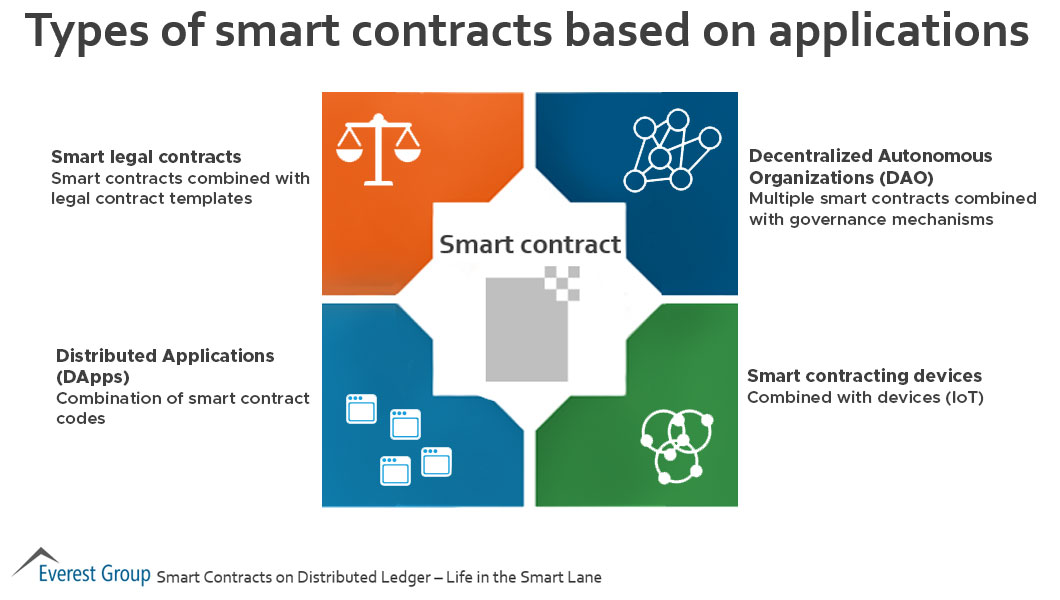
Smart Legal Contracts combine a legal template with a business logic and aim to digitize legal contracts.
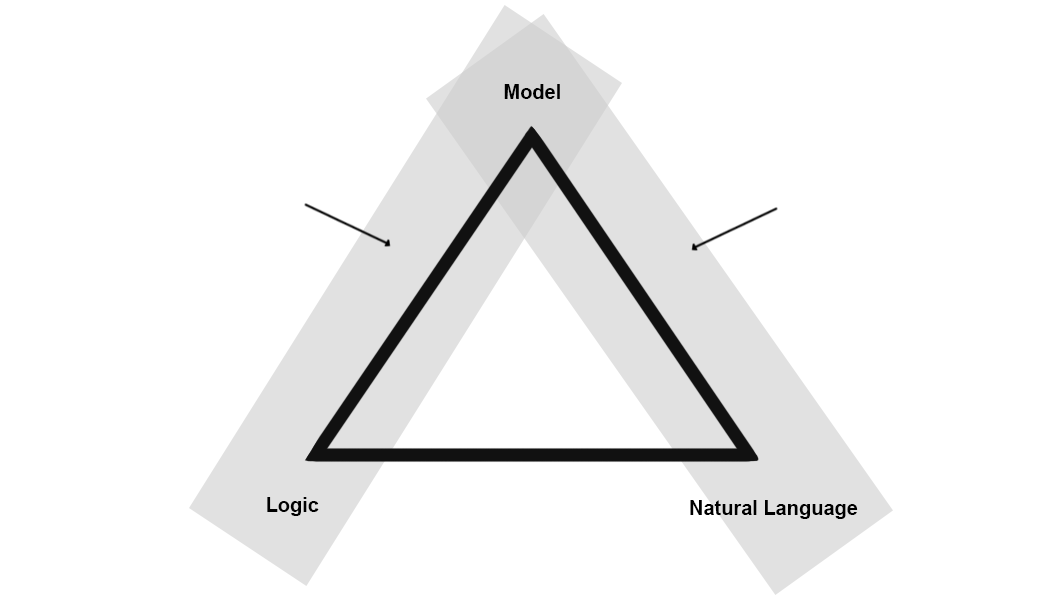
Smart Legal Contracts – Cicero concept: courtesy accordproject.org
For more information on this Open Source project, click here.
The Code-Based Smart Contracts subcategories – DAO, DApps and IoT-combined – are for managing business processes within or between organizations.
DAO (Decentralized Autonomous Organization)
DAO aims to encode the rules of an organization in a computer program to achieve transparency. Since such an organization is controlled by shareholders and not influenced by a central government, the transaction records are facilitated using the Smart Contracts system.
DApps (Distributed or Decentralized Apps)
These software applications run on a P2P environment and are not hosted on a central server. They use blockchain to store data, and as such the program is designed in a way that it’s not controlled by any single entity. Smart Contracts need a network to function on, and DApps helps integrate their usage efficiently.
IoT-combined Contracts
IoT-combined Smart Contracts allow for commercial transactions via IoT-enabled products and are used to govern and manage interactions between multiple devices, satisfying the needs of monetization or security for the Internet of Things.
In the next article in this series on Smart Contracts, we will discuss the potential application of Smart Contracts in the enterprise and the security in the execution of such contracts with some actual business use cases.
Feel free to reach out with any questions on Smart Contracts, and our editorial team will ensure our Digital Disruptor addresses your queries through this series of blogs on the topic.


 By
By 


